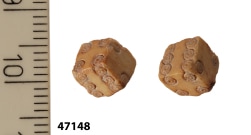weekly column
|
Each week, find a commentary on something connected to verses of Torah or another source of wisdom
|
|
Each week, find a commentary on something connected to verses of Torah or another source of wisdom
|
 The Genesis:3 Project He himself passed before them and bowed low to the ground seven times until he was near his brother. Genesis 33:3 This past weekend was Memorial Day here in the United States and we honored those whose lives were given in service to our country. Overwhelmingly, the ultimate price was paid by young men and, increasingly, young women. Their courage and sacrifice was demanded of them, just as overwhelmingly by older men and, increasingly, older women. The type of courage they exhibited was mostly forced on them. Certainly, they trained for it and certainly, they understood their mission. But that kind of courage, too often validated by tragedy, is of a different sort than the voluntary acts of valor that distinguish a leader. More often, that brand of courage emerges from previous failure of judgment or of heart. I don’t mean to give credence to the sort of epic failure-begets-success stories that are merely clickbait. The most familiar is the list of Abraham Lincoln’s failures before he was elected President. Much of that list is exaggerated and all of it ignores the accomplishments that occurred simultaneously in his ascent to the top. From inventors to rock and roll stars to authors whose overnight success takes decades, perseverance is more usual than courage. True courage comes from facing a challenge that requires coming to terms with the consequences of past shortfall. Any kid who fell off a bike and got back on knows that kind of courage. Anyone who shoplifted a comic book or candy bar and goes back to the store to admit it, who accepted an unwanted sexual advance from a boss and then risked the gain to call him out, who betrayed a confidence and much later risked a friendship to apologize has discovered genuine courage. Here is an example: General Martin Dempsey was the chair of the Joint Chiefs of Staff, the capstone on a long career in the Army in which he was increasingly responsible for the lives of tens of thousands of those aforementioned young men and women. The hardest part of his commands, he will tell you, was dealing with the casualties. No loss was acceptable, yet it fell to him to offer perspective to grieving family members and comrades. Unhappy with platitudes, he sought to inspire memories with a simple phrase – Make it matter. On his desk sits a box with that motto engraved on the top. Inside are cards, each with the name of one soldier whose life was lost under Gen. Dempsey’s command. During his service, as well as during his retirement, he has taken on the mission on behalf of each lost life to make it matter. The loss of life during war is unavoidable, and too often it is the necessary price for a just cause. Perhaps it is an understandable inclination to accept the inescapable and move on. But a true leader will confront the circumstances of an unacceptable loss and do his or her best to reconcile as part of the mission to move forward. Marty Dempsey is that kind of leader. So was our father Jacob, as it turns out. He hoodwinked his brother and his father decades earlier and then made a name for himself in a distant land. When it was time to return to his home, he found himself responsible for his role as provider and protector of the family he led, but facing the unresolved deception of the family of his origin. Caught between courage and consequence, he makes a remarkable show of valor and contrition at the same time. Passing before encampments of his wives and children, he steps forward to defend them against any hostility – a remarkable display of daring – and simultaneously effaces himself in approaching his brother. Both acts are genuine – there is neither bluster nor rationalization. Too much leadership these days involves pretending that past deficiencies were the result of circumstances, incompetent partners or personal hostility from others. Puffing up like a blowfish and pointing a finger (or a fin) at villains past or present fools all of the people some of the time and some of the people all of the time. Leaders are much more credible when they own up to the consequences of earlier days and, as a result, stand better prepared to meet the challenges ahead. More leaders like Gen. Dempsey would mean fewer people to remember on Memorial Day.
0 Comments
 The Genesis:3 Project When he saw them, Jacob said, “This is God’s camp.” So he named that place Machanaim. Genesis 32:3 “Being of two minds” is a revealing idiom. When it applies to a situation of conflict that requires a person to say yes to one and leave the other behind, it illustrates the capacity of the human being to consider alternatives. That kind of deliberative approach to decision-making is not only praiseworthy, it is one of those qualities that makes human life so much different from most, if not all, other forms of life – the ability to imagine circumstances not directly experienced. (I also like the idiom because it allows me to be out of my mind and still have one left to rely upon. See picture.) We have heard an awful lot about the echo chambers that have become such a part of American life. More and more, people have elected a single camp in which to pitch their tent and listen to no one outside of its boundaries. While academically we may endorse the methodology that suggests a hypothesis, tests it and then reaches a judgment or a conclusion about the validity of the original idea, in life today far too many people reach a conclusion and then seek out only the evidence that reinforces that uninformed choice. The second mind never even puts in a cameo appearance. I participated in a public discussion recently in which I advocated for more genuine listening. It is harder to be dismissive of another person when you understand their story and get to know the individual face to face. The moderator of the discussion objected, asking how I could consider people who were racist, misogynistic and anti-semitic supporters of the alt-right worth taking seriously (guess what the discussion was about). I replied that if someone said to me, “Hitler should have finished the job,” I would not tell him or her that I affirm that personal narrative, but that there was a long distance between disagreeing with me and being a racist, misogynistic anti-semite. It is all the folks on that continuum I want to hear carefully. Another member of the panel suggested that the very invitation into dialogue was an expression of appreciation for the other person. Being of two minds is, I think, an admirable quality in general. The notion that there is more to consider than the obvious (to me) choice is a clarifying attitude. The sense that internal objections and challenges should be acknowledged rather than ignored or dismissed is healthy for the wholeness of the self; it does not allow the quarantine of critical reflections. The acknowledgment that I could be wrong, however high I might put the odds, prevents humility from being banished from the heart. And if all of that is true for the self, it is at least as true when considering relations with others. It helps to remove the inclination to validate by force instead of by persuasion. Even in times of great certainty, the affirmation of doubt is essential. Without the presence of doubt, certainty is less conviction than arrogance. We all know people so persuaded of their own rectitude that they are insufferable. Every conversation is a personal referendum and every disagreement is war. I know how many times I have felt my own tentative conclusions harden into unshakeable confidence if for no other reason to refuse to reinforce the smug self-righteousness of someone else’s conceit. There is no gain in such intellectual sclerosis. When Jacob separated from his father-in-law Laban for the last time, there must have been relief and confidence in his heart. Encountering angels along his exit route, he proclaimed that the place he pitched his tent must have been God’s camp – the word for camp being machaneh. But when he named the place, he added to the name the suffix that, in Hebrew, denotes a pair – the proper plural suffix for eyes, ears, hands, legs and socks. Machanaim means “a pair of camps.” Most of the commentators suggest that the angels were in two cohorts, which provoked the name. I think otherwise. He fled from his home of 20-plus years with all that he earned, all that was rightly his. His father-in-law was bent on harm, and caught up with him. In the end, they didn’t exactly reconcile, but they came to terms. The way forward came from considering the way back. Two camps. Two minds. And here’s the thing – Laban didn’t have to agree for Jacob to see his way forward. The act of hearing out the other side gave Jacob the necessary sense – a sense he did not have before – that he had made the right choice. I don’t make any secret of how deeply troubled I am by the leadership of our country. My distress has had an effect on my hearing, to be sure. But at the same time, as I watch the imitative behaviors of people who share my perspective, it has provoked me to be of two minds so that I might find the way forward.  The Genesis:3 Project Then the LORD said to Jacob, “Return to the land of your fathers where you were born, and I will be with you.” Genesis 31:3 I recently returned from a trip to Israel. I have lost track of how many times I have been there – it is probably around 20 times. Almost always I have been a tourist, though I may protest to the contrary. Without exception, I am overwhelmed with the desire to return to the land of my ancestors where, at least metaphorically, I was born. Geographically, I was born in Chicago and I never spent more than a few nights away from my home until I was 18 years old. And then the summer after I graduated from high school I went to Israel for eight weeks with USY Israel Pilgrimage, the signature summer program of my denomination’s youth organization, United Synagogue Youth. It was a transformative experience for me. I lived the life of an observant Jew every day. I visited places that had been named in lessons in after-school Jewish instruction. I ate foods I never heard of before. I climbed down a cliff and explored caves where warriors and refugees lived in ancient times. I was invited – constantly – to become a part of the great renewal of national Jewish life by moving to the first Jewish state in 2000 years. I sang. I made lifelong friends. I felt my life draw meaning from the touch of the Western Wall of the Temple Mount. But one experience meant more than all the others. For a week, each group of teenagers worked at the excavations below the southern wall of the Temple. Today, those excavations are pretty much complete, but then they were only a couple of years old. I was assigned to the remains of a small room I can still identify when I tour the site. The walls were perhaps two feet high and the room was barely large enough for half a dozen people to gather. Our job was to dig, fill rubber buckets and sift. Dig, fill sift – every hot day for a week. My hands touched distant yesterdays. I did not find inscribed tablets or jewels. But I did find dice, coins and teeth and bones from someone’s long-ago dinner. The archaeologist assigned to our quadrant told us that we were likely uncovering barracks of Roman soldiers and therefore found evidence of their leisure time. I had reached back into history. That summer other USY participants helped to uncover a column that had stood in the Second Temple. It was big news. But for me, the tiny clay cubes with dots on each side and the swollen and oxidized discs held much more significance. Like the lyrics I learned during those weeks and still love to sing, they were a song from two thousand years that renewed me each day. Part of me is permanently in that land. It is a youthful romantic notion, even if almost fifty years later it still carries meaning for me. On this recent visit, my nephew (who is raising his young family in Jerusalem) invited me again to become part of the great renewal of national Jewish life. I have built my life elsewhere, comfortably and with easy access to the people most important to me. If I have squandered the chance to return permanently to the land of my ancestors, I comfort myself that I am able to find my way to their home with relative ease and regularity. And pieces of the land return with me, as they have on every trip. Israel is not the same as when I first kissed the tarmac in 1970, and neither am I. The modern state is complicated and often troubling, these days a fountain of challenges to my values and my friendships. Why it is easier for me to imagine myself looking up from that dorm room at the steps to the Temple in ancient times than it is to imagine myself in a flat in Raanana or Ashkelon or Jerusalem, I cannot tell you. But the love that was first consummated during that summer of discovery cannot now be sanctified, perhaps because we remember each other as we were and not as we are. But it does not stop little roots from sprouting from my feet when I step off that plane. It does not staunch the tears of joy when I arrive, or the tears of longing when I depart. It does not prevent my existential crisis – something very welcome at my calcifying age – when walking the streets of Jerusalem gives me deeper satisfaction than a walk around the familiar neighborhood in which I live a very fine life. Some day in the distant future my current home will be excavated for archaeological study. A young student will be excited by her ability to reach back into 21st century America and touch the bloated quarter and encrusted 2GB SD card sifted out of the rubble. She will try to imagine what it was like back then, and maybe she will be enthralled by the notion of cable TV and burgers on the grill. Yet she won’t find a way to go back there, no matter how much it speaks to her heart. But it doesn’t mean that God will not grant her (and long-gone me) a reunion.  The Genesis:3 Project She said, “Here is my maid Bilhah. Consort with her, that she may bear on my knees and that through her I too may have children.” Genesis 30:3 A friend of mine who writes for a national publication asked me what three books I would recommend to get us through the tumultuous times that the current administration has provoked. I chose three: the Book of Psalms, Rainer Maria Rilke’s Book of Hours and Margaret Atwood’s extraordinary novel The Handmaid’s Tale. I hope it is obvious why I chose the psalms. The range of emotions and spiritual dilemmas addressed across 150 devotional poems of human authorship is extraordinary. Whether in distress or joy, the soul resonates with something in this collection. Plus, I am a rabbi, so duh. Rilke is my favorite poet, though I will admit he doesn’t have much competition. I have never been much good at reading poetry, but there is something about this young man’s sense of yearning that has always resonated with me. And this particular collection somehow speaks to me most clearly. But Atwood’s work is probably the best novel I ever read. If you are unfamiliar with it (and did not see the movie or current TV adaptation), you won’t understand the serendipity of my contribution to the magazine and the verse that frames this column. The Handmaid’s Tale posits a dystopian not-too-distant future in which a planet-wide fertility crisis and a fundamentalist Christian take-over of the United States results in an extreme paradigm shift. Suddenly, women’s freedoms are revoked. Those who are unmarried and able to bear children are assigned to households headed by men of wealth and privilege as handmaids. Their main task is to bear children. But because these are Biblical literalists, the sexual congress necessary to produce offspring happens with the handmaid inseminated while leaning against the knees of her infertile mistress. I am not doing a service to the novel by reducing it to this element of the plot, and I am certainly not suggesting that the current administration is plotting anything like the theocratic reboot Atwood imagines. The story is riveting, the examination of what it means to be a woman before, during and after this period of time is breathtaking and the cautions are profound. But it is the prologue and the epilogue that set this book apart. The earliest chapters illustrate credibly how easy it is for the hard-won victories of progressive ideals to be reversed. I talk to lots of people, including those who claim to be part of the “resistance” and those who are enthralled with the changes in public policy, who believe that basic commitments to gender equality and the integration of racial, religious and sexual minorities are irreversible and normative. Atwood dissents. She illustrates not necessarily what will happen, but how easily what might happen could come to pass. The epilogue (spoiler alert) is an optimistic look back at the events of the story from an imagined future vantage point. It is an affirmation that the moral arc of the universe indeed bends toward justice, even if now and then it flops the other way. So is this column just a long-belated book review? Not entirely – though if you haven’t read this book, you should. I find myself thinking about living in a future vantage point from the story of Bilhah, handmaid to Rachel and surrogate mother to Jacob’s sons. Of necessity, because this narrative is in the Torah, it is considered a sacred story. But I look at Bilhah through the filter of The Handmaid’s Tale and understand that whatever honor and blessing our long tradition heaps upon her, she was diminished as a child of God. She had her “rights” (an unknown concept in the Bible), but they were few and paltry compared to her mistress and less still compared to her master. Like the unnamed servants and slaves, resident aliens, religious dissenters, tribal enemies and women of every station, whatever dignity was Bilhah’s was the result of largesse, not inherency. I would like to believe that the fault lies in human beings who were incomplete in their understanding of God’s will, but I am aware that 3500 or more years is a long time for that belief to be widely held. And that’s what makes Margaret Atwood so credible. We do not have the luxury of being sanguine about the gains we have made here in the United States toward full realization of the “self-evident” truths articulated by our founders. The shortcomings we work so hard to overcome are deeply embedded in our individual and collective histories, and it is easy to fall back on familiar tropes – sometimes with malice aforethought and sometimes out of convenience and comfort. Reading psalms, poems and speculative fiction is not the cure for tumultuous times. But to avoid backsliding to a time that our current dissatisfaction imagines as being better than today, it helps to be reminded that the blessings we enjoy are ours by circumstance, not by nature. And that circumstances change.  The Genesis:3 Project When all the flocks were gathered there, the stone would be rolled from the mouth of the well and the sheep watered; then the stone would be put back in its place on the mouth of the well. Genesis 29:3 I wonder if this verse from the Bible is the earliest reference to the rolling stone of fame and proverb. Everyone knows that a rolling stone gathers no moss, a bit of wisdom traceable back to ancient Greece and definitively proven by TV’s “Mythbusters” (who actually rolled a stone for six months in a moss-rich environment). But without necessarily mentioning the moss (or the similar lichens, hornworts or liverworts), the rolling stone has turned up in all sorts of places. Muddy Waters wrote a song by that name that inspired four young musicians to call themselves The Rolling Stones. Bob Dylan lived into the image when he rolled out of folk music and into rock with his transformational “Like a Rolling Stone.” And Dr. Hook was not the only one who hoped to wind up on the cover of the Rolling Stone. There is a temptation to overthink the metaphor, but it is worth taking a couple of paragraphs to consider whether being a rolling stone is a good thing. I will stipulate that being a Rolling Stone, even in your mid-70s, is indeed a good thing. But, to coin a phrase, when you feel like a rolling stone, how does it feel? If collecting moss is the result of being stuck in one place all the time in a stagnant state, I imagine being in continual motion is a pretty good thing. Most of us get relatively regular reminders to move both physically and mentally. An active body and an active mind are important ways to avoid getting weighed down by the collecting moss that can incapacitate us after a while. On the other hand, if collecting moss means acquiring the stuff of life – relationships, sustenance, “new growth” – then I have to guess that being constantly on the move is pretty dissatisfying, if not to one’s self, then to the people who get passed by or run over. It was no compliment to Papa to call him a rolling stone. In the end, there is one more variable to consider. It is something we generally overlook when considering the metaphor, but is made clear by the verses from Genesis. A stone doesn’t roll by itself. Aside from the forces of nature’s friction necessary to create a stone that can roll rather than lurch and bounce, some thing or, more likely, some one must be the source of the roll. Maintaining the momentum requires a direction that is downhill, another often unconsidered detail. In this little vignette, the rolling stone is an important tool, not so much a characteristic. The water in the well is protected by the stone on top of it – it cannot be polluted or stolen, and nobody can accidentally fall in. It requires a collection of shepherds to be moved. The stone goes nowhere without the community pushing it. Yeah, I know, it’s a metaphor and despite my own warning I am overthinking it. But this image of a rolling stone is a good example of how many different ways a turn of a phrase can be understood depending on context and, at least as important, on proclivities. And how facts that are important may be overlooked. I am reminded of these lessons as I am confronted by the partisan advocacy that saturates our public discourse. Words, even carefully chosen, can be interpreted in many ways, especially if they are deployed with sly intentions. Facts, if obscured by verbal images, can be overlooked when the implications of a turn of phrase are debated. Practicalities, so easily taken for granted, can disable ideals if they are dismissed as irrelevant. And the needs of a diverse community are often overlooked in the quest to make a point. I could write more, but if you start me up I’ll never stop. |
Archives
October 2023
Categories |